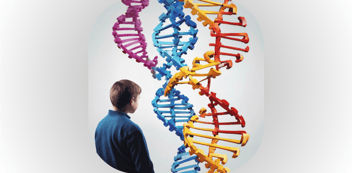Understanding Autism Through Genetic Health Testing
- Home
- Blog

Autism spectrum disorder (ASD) —is a neurodevelopmental condition caused by differences in the brain that can lead to significant challenges in socialization, communication, and behavior.
Diagnosing and treating autism can be challenging. Each individual with autism is unique and deserves a treatment plan tailored to their needs. Fortunately, scientific advances have introduced genetic testing as a way of tailoring care to a number of mental health conditions such as autism.
Let's discuss some of the cutting-edge genetic tests and how they can be used as a transformative tool in understanding and managing ASD.
The Role of Genetic Testing in Mental Health Treatment
Genetic testing is completely changing medical care, revolutionizing the way we diagnose and treat numerous mental health conditions. Through a simple cheek swab, we have the power to unlock invaluable information to guide mental health treatments based on each person's DNA.
In recent years, the role of genetic testing in mental health treatment has expanded, spotlighting countless therapeutic benefits, such as:
- Identifying root causes of mental health conditions
- Tailoring treatment for each individual
- Treating the whole person–not just their symptoms
- Helping patients get better faster and at a lower cost
Genetic testing is part of our Root Cause Psychiatry™ approach at Potomac Psychiatry, which pairs these tests with other laboratory panels and treatment methods to help us narrow down root causes of mental health conditions and treat them more effectively.
Our entire mental health ecosystem—everything from genetics and the gut microbiome to cellular health, environmental factors, and beyond—can impact our mental health, so the more we can learn using genetic testing, the better!
Using Genetic Health Testing to Understand and Treat Autism
Autism is the perfect example of a mental health condition that we can better understand and treat using genetic testing. Research from the Journal of Personalized Medicine shows just how significantly genetic testing has improved the lives of children with ASD—and it’s just one example of many that supports this approach.
Innovative laboratory tests, such as the Folate Receptor Antibody Test (FRAT), Genomind, and IntellxxDNA panels, can help uncover genetic variations associated with autism for faster diagnosis and more precise treatment, which is important because the earlier autism is diagnosed, the more effective the interventions tend to be.
Many genetic factors contribute to ASD and can be tested for, including:
- Various genes and/or other molecules that cause brain inflammation
- Genetic variants that cause damage to the cells
- Genes that relate to regulating the structure and functioning of neurons in the brain
- Single nucleotide polymorphisms (SNPs) that create variation in how nutrients are utilized within the cellular machinery
Along with identifying the root causes of autism and supporting early diagnosis, genetic tests provide treatment guidance to help “turn on” and “turn off” specific genes. In other words, the highly targeted use of supplements and nutritional intervention—guided by genetic test results—allows us to “turn off” genes that worsen symptoms of autism and “turn on” genes that improve areas such as social skills, communication, behavioral control, and cognitive processing.
Genetic Testing for Autism at Potomac Psychiatry
We know that living with autism isn’t always easy—but together, we can find a way.
At Potomac Psychiatry, we’ve used genetic testing since 2013, helping thousands of our patients assess how genetics play a role in their mental health. This unique treatment approach has been associated with significant improvements in socialization and verbal skills, academic milestones, and increased ability to function.
Download our guide to learn more about Unraveling Our DNA as a Root Cause of Mental Health: The Role of Genetic Testing in Root Cause Psychiatry™.
.png?width=144&height=144&name=Untitled%20design%20(34).png)






